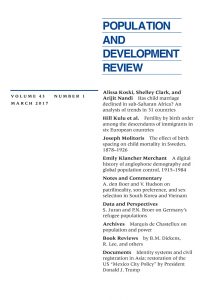Risks and responsibility: Navigating the long-term care of bariatric patients
by Zoë Meleo-Erwin, William Paterson University ·

“Concerns are rising about the late adverse events following gastric bypass and sleeve gastrectomy.” So opens the abstract of an article recently published in the Lancet detailing the results of a nationwide, observational, population-based, cohort study in France. In this study, researchers compared nearly 9,000 bariatric patients with matched controls looking at outcomes for both mortality and morbidity (specifically: gastrointestinal disorders with the need for endoscopy or surgery; gastrointestinal disorders without the need for these interventions; nutritional disorders, and psychiatric disorders). They found that though the bariatric patients had lower 7-year mortality than the controls, they had a higher risk of being hospitalized for all of the aforementioned adverse events, except for psychiatric disorders. In concluding the article, the authors made two important points: 1) prospective patients need to be clearly informed about the risks of bariatric surgery, including the potential for complications years after surgery, and 2) bariatric patients require rigorous long-term follow-up.
This later point is notable. As I describe in an article published this year in Sociology of Health and Illness, previous research has found that up to 72% of weight loss surgery patients do not return to their home bariatric clinics for post-operative follow-up care and support services within the first one to two years after surgery. However, the reasons for this lack of follow-up are considered poorly understood. With that said, within the bariatric literature, patient behavior and psychology is often emphasized as the cause of this lack of follow-up.
Before continuing, it may be helpful to clarify why bariatric patients need ongoing care in the first place. After all, when one undergoes an appendectomy, for instance, there is no reason for long-term follow-up. Similarly, it would be hard to imagine patients congregating in support forums, often for years on end, discussing the challenges and obligations of living without an appendix. Bariatric patients, by contrast, need follow-up care and support beyond the immediate post-operative period for several key reasons: First, as the Lancet study referenced above makes clear, while the mortality rate associated with these procedures is low, complications and side-effects occur far more frequently. These complications and side-effects may continue into the long-term and can be related to patient behavior. Second, despite being associated with more durable weight loss than dieting, regain is commonplace after bariatric surgery. Third, with the exception of the adjustable gastric banding procedure, these surgeries are permanent. Finally, living with a radically surgically altered digestive system involves substantial psychosocial adjustment. Notably, the joint accreditation standards from the American College of Surgeons and American Society for Metabolic and Bariatric Surgery mandate that accredited clinics follow up with patients long-term, make concerted efforts to retain patients to care, and hold regular support groups supervised by a professional. However, within the United States, bariatric clinics do not need to be accredited in order to perform these procedures.
In my research I sought to understand how patients themselves describe the post-operative relationship with their home surgical clinics and to whom they ascribe the responsibility for long-term health and weight-loss outcomes. To do so, I analyzed 217 posts and comments in two top, patient-led weight loss surgery websites. I found that patients most commonly describe their home surgical clinics in positive terms. However, when they described them in an ambivalent or negative manner, they typically cited a lack of proper post-operative information, follow-up care, and support services. And, echoing the bariatric profession, they overwhelmingly described the responsibility for health and weight loss outcomes as lying with patients themselves. Given the prevalent belief in many Western societies that health outcomes, like life chances, are the result of individual efforts, this latter finding is perhaps unsurprising. It is nevertheless concerning, particularly because it may serve as a barrier to care.
As a follow-up study, over the past year I have conducted over two dozen semi-structured interviews with weight loss surgery patients and bariatric professionals (surgeons, nurses, mental health professionals, and registered dieticians). In the interviews, I’ve asked each participant to ponder why so many individuals do not return for follow-up care after bariatric surgery. Nearly all of them have suggested that patients either do not feel a need to return because they are doing well (and thus believe follow-up care and support are unnecessary), or, they are ashamed of less than “optimal” weight loss and/or regain (and thus avoid returning for care and support). Though I cannot confirm that these hypotheses, they are perfectly plausible. Regardless of weight loss outcomes, however, all bariatric patients need long-term follow up given that the risk of adverse events continues well after the immediate post-operative period.
The potential for side-effects and complications, including in the long-term, must be accessibly, thoroughly, and repeatedly communicated to prospective patients to both ensure truly informed consent. As well, the need for ongoing post-operative care and support must be emphasized. Finally, it is imperative that the care bariatric patients receive, regardless of weight loss outcomes, be non-stigmatizing.
Bariatric surgery has been described as many things by supporters and detractors alike. In the end, however, these procedures are not a panacea, are not mere tools, are not the “easy way out,” and they are not a simplistic capitulation to normative ideals of health and beauty. Rather, in a social and political context in which individuals are believed to be responsible for their own life and health outcomes, these surgeries lead to many embodied, psychological, and social shifts that are experienced by patients as highly beneficial. Yet these procedures come with physical and physiological changes that are hardy positive in nature and must be carefully navigated by patients and providers together. Ultimately, bariatric surgery makes clear that biomedical interventions, whether in terms of their justification, implementation, or outcomes, are fundamentally social in nature.
References:
American Society for Metabolic and Bariatric Surgery, 2016, Standards manual: Resources for optimal care of the metabolic and bariatric surgery patient, viewed October 2017 from: https://www.facs.org/~/media/files/quality%20programs/bariatric/mbsaqip%20standardsmanual.ashx
Bradley, L.E., Sarwer, D. B., Forman, E.M., Kerrigan, S.G., Butryn. M.L. & Herbert, J.D., 2016, ‘A survey of bariatric patients’ interest in postoperative interventions,’ Obesity Surgery, 262,1765-1769.
Gould, J.C., Beverstein, G., Reinhardt, S., & Garren, M.J., 2007, ‘Impact of routine and long-term follow-up on weight loss after laparoscopic gastric bypass,’ Surgery for Obesity and Related Diseases, 3, 627-630.
Meleo-Erwin, Z., 2019, ‘”No one is as invested in your continued good health as you should be:” An exploration of the post-surgical relationships between weight-loss surgery patients and their home bariatric clinics,’ Sociology of Health and Illness, 41(2), 285-302. https://doi.org/10.1111/1467-9566.12823
Meleo-Erwin, Z., Basch, C,. Fera, J., Ethan, D., & Garcia, P., 2019, ‘Readability of online patient-based information about bariatric surgery,’ Health Promotion Perspectives, 9(2), 156-160.
Thereau, J., Lesuffleur, T., Czernichow, S., Basdevant, A., Miska, S., Nocca, D., et al., 2019, ‘Long-term adverse events after sleeve gastrectomy or gastric bypass: A 7-year nationwide, observational, population-based, cohort study,’ The Lancet, viewed August 2019 from: https://www.thelancet.com/journals/landia/article/PIIS2213-8587(19)30191-3/fulltext
Zoë Meleo-Erwin received her doctorate in sociology from the Graduate Center of the City University of New York in 2013. She holds Master’s degrees in social ecology from Goddard College, and disability studies from the City University of New York School of Professional Studies. Her research interests include health disparities, structural determinants of health, weight-based stigma, food-based health movements, and decision making around vaccination. A list of her publications can be found at www.zoemeleoerwin.com






1475-6781/asset/JSS.gif?v=1&s=377bb8e0c3d0fcf201f301ded7cf610142072c3e)